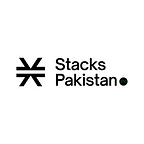Opening New Doors
The discussion around Web 3.0 is one thing, but the viability and feasibility of its adoption is another. Whenever a new idea pops up on the horizon of innovation, there are those that get excited and those who get nervous. The excited ones see the idea as a breakthrough in the current setting, and a chance to correct the wrongdoings and flaws of the present. The nervousness is also justified because if any new thought is applied without doing the homework, the consequences can be devastating on so many levels. While, the world of business is hugely dependent on monetary gains, it still is hostage to the market trends.
The trends that drive people to change their taste, or try something new. Many new startups introduce ideas that alter the mentality of the masses. Some take the market by storm with their efficiency and fast service. Others put emphasis on the quality and precision of their work, thus, take time out of the equation. It is inevitable that the market’s demands always stay on the same track over a considerable period of time, because the market dynamics constantly evolve.
In this age of data and information, market shifts can be caused by something as simple and mundane as a TV show. But it is the essence of displeasure and insecurity that disrupts that cycle of supply and demand. It is because the user has become so self-aware and in a state of constant improvement, that aligning itself properly with the changing market is not a choice for any given startup, or even brand.
The current world of IT has come to the crossroads of basic user safety. Just when like the world saw a surge in populations, it was necessary to have law and order. Similarly, when the number of internet users increases, so does the concern around their safety and sanity.
Stacks became a part of the new breed of startups, that wanted to bring the user safety to the forefront. The market has been neck-deep in the vibrancy of web 2.0; the existence of dynamic websites, along with the integration of data science and AI, has attracted millions to the realm of internet’s second generation.
It is important to understand the role of Stacks Pakistan, by putting all its activities in perspective. Pakistan has faced a ton of challenges in the past couple of decades, as the war-affected country’s fate was no different from that of a ship in storm. As Pakistan’s national policies revolved around the war on terror, the talent in the world of IT continued to impress.
It is crucial to the success of Stacks to have local talent especially developers on-board. But the new developers require a thorough evaluation and a close eye of the ones in industry to make them fit for the industry. With so much of a change going on in the industry, and with the imminent revolution of web 3.0, it is important to have the best individuals on the blockchain express.
To counter the twin problem of talent evaluation and potential new recruitments, Stacks has put a multi-dimensional plan into action. By engaging itself on the grassroot level it gathers students from the best IT institutions and invites them over for free-of-cost Clarity (Stacks’ own language for blockchain development) Bootcamps and Cohorts. The graduates of the Cohorts (Cohort 1 in May, 2021 and Cohort 2 in November, 2021) are then brought forward by the Accelerator Job Fair (June, 2021), an online placements event that connects Pakistani blockchain developers and enthusiasts to a number of blockchain startups around the world.
While, the Cohorts and Bootcamps serve on the academic front, and Accelerator Job Fair offers the professional end of the whole process. But there’s still another important issue; the lack of awareness towards blockchain, data safety and web 3.0. To address these drawbacks, Stacks Pakistan introduced its first Hack4Impact (Hackathon) back in March 2021. The company then invited all participants of the event for Cohort 1, in order to strengthen the start of its campaign. June of 2021 witnessed the first Cohort, paving way for the Stacks Summer School in July. The Summer School was a rather shortened version of Cohort, where the participants were involved in a three-week long boot camp on Clarity. The interesting part of the Summer School was the service of Cohort graduates in it, as they taught the newcomers about the language. The crown jewel of the whole process was Xplore 1.0, Pakistan’s first conference on Blockchain. Xplore combined all elements of Stacks’ previous events, the graduates from Cohort 1, participants of Summer School and the Stacks’ Country Head for Pakistan, Mr. Nabeel Qadeer.
The company aims to capture this market by being the catalyst of change. There has been a positive impact of all the events that adds up to give a massive surge of synergy, massive enough to give flame to the shift towards the third generation of internet.
In the twenty first century, the market has become so volatile that the chess board sales in Europe went up after watching The Queen’s Gambit from Netflix.
In these times, Stacks aims to bring web 3.0 into the mainstream by engaging on all fronts; gathering and training developers for Blockchain, providing employment opportunities and giving awareness to the masses. This also means that Stacks leading the market in Pakistan, as the powers of web 3.0 and blockchain continue to be harnessed.
Written By: Humza Noor
